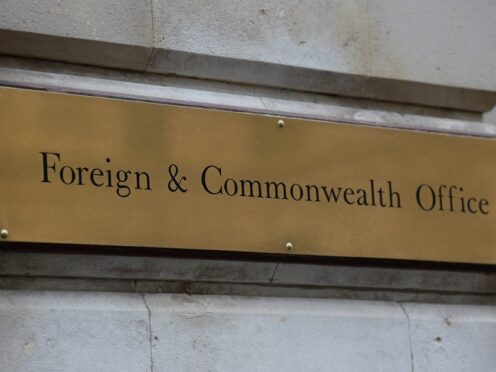
A report by leading diplomats is encouraging the Foreign Office to rebrand, including a new name and modernisation of premises.
Moazzam Malik, former director-general at the Foreign Office and one of the authors of the report, said the current building “speaks of our past rather than our future”.
The report from UCL Policy Lab and Hertford College, Oxford, sees leading figures from British diplomacy and international development call for a renewed vision of UK foreign affairs.

Recommendations include a new name and premises for the Foreign Office, describing the department’s official title – Foreign, Commonwealth (formerly “Colonial”) and Development Office – as “anchored in the past”.
Furthermore, the Foreign Office buildings that feature portraits of colonial leaders were described as “somewhat elitist and rooted in the past”.
The report also suggests the UK should “face our historical legacy head-on”, stating: “Former colonies are making increasingly vocal demands around the need for reparations from colonialism and compensation for the loss and damage arising from historical industrial emissions.”
A Downing Street spokesman said Prime Minister Rishi Sunak does not agree that the Foreign Office is “elitist” and should remove colonial-era paintings, adding that he is “proud of the UK’s history”.
Mr Malik told BBC Radio 4: “It doesn’t necessarily have to be a different building, but we’re calling for a modernisation of the Foreign Office premises because, if you enter the Foreign Office building, it speaks of our past rather than our future.
“There are still many colonial-era pictures on the walls. I came across an incident recently where a senior Irish diplomat was visiting the Foreign Office for a meeting about the UK Food and Nutrition Summit.
“Towering over the meeting table was a portrait of Lord Trevelyan who was famous for wanting to limit the UK’s financial exposure to the Irish potato famine. The significance of that was not lost on the Irish diplomat.”
He added: “We have a lot to be proud of in our past and some things not to be so proud of, but the point is that we need to look forward to 2040 to look at how the world is changing to think about our role in that world, and really to position ourselves for that future.”
To remedy these issues, as well as other problems in the Foreign Office including short-term strategic thinking, the report recommends clarifying the department’s enduring mission, purpose and objectives, establishing stronger delivery structures and modernise the working environment.
Mr Malik said: “The UK’s place in the world is changing.
“We’ve exited the European Union, power is shifting to the east, geopolitics has become very, very bumpy, the rules-based order is under great pressure, but at the same time, the UK is a very open economy, a very interconnected economy, and our future prosperity and security depend on strong international relations.
“So our call is to do foreign affairs slightly differently, to modernise our approach and indeed to look at what we can learn from countries like Japan, Switzerland, Norway, Canada, offshore nations – if you like countries that are linked to big economies on their borders – but also need to look beyond those big economies to their international relations around the world.”
Mr Malik called for a “laser-like focus on the things that will determine the UK’s future prosperity and security”.
He said: “Things like economic prosperity, security, climate change, development, building up international institutions, so, instead of a malleable idea of pursuing national interest, we’re calling for clarity of objectives, setting down a bunch of things at the Foreign Office and indeed wider government will focus on and then building capability, skills, data metrics and indeed delivery capacity on those.
“Because the things that affect our future are long-term in nature and all too often our foreign affairs can be pretty short-termist.”
The Prime Minister’s official spokesman said: “I don’t think he would agree with that assessment at all. The Foreign Office is doing vital work to protect and promote UK interests abroad and he fully supports the work of the Foreign Office, and indeed the Foreign Secretary, in achieving those objectives.”
Asked whether Mr Sunak thinks the Foreign Office should remove colonial-era artwork, the spokesman said: “No. We’ve previously talked about being proud of the UK’s history and looking forward. The Foreign Office is at the forefront of efforts to promote UK interests at home and abroad.”

Enjoy the convenience of having The Sunday Post delivered as a digital ePaper straight to your smartphone, tablet or computer.
Subscribe for only £5.49 a month and enjoy all the benefits of the printed paper as a digital replica.
Subscribe